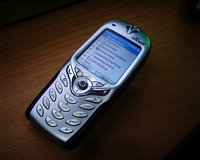 The SJC recently issued a decision – Commonwealth v. Onyx White – affirming the allowance of the defendant’s motion to suppress the fruits of a search of his cellular telephone The Court affirmed the trial court’s decision on the grounds that the police lacked probable cause to initially seize the telephone and waited too long (sixty-eight days) after seizing it to obtain a warrant to search its contents.
The SJC recently issued a decision – Commonwealth v. Onyx White – affirming the allowance of the defendant’s motion to suppress the fruits of a search of his cellular telephone The Court affirmed the trial court’s decision on the grounds that the police lacked probable cause to initially seize the telephone and waited too long (sixty-eight days) after seizing it to obtain a warrant to search its contents.
The basic facts were as follows. In the course of an attempted armed robbery of a convenience store, one of the perpetrators shot the victim. “The next day, the defendant, then sixteen years old, told his mother that he had participated in a robbery … and that someone had been shot.” The mother revealed that information to the police. Two days later, “a detective investigating the robbery-homicide met with one of the … administrators [of the defendant’s high school]. The administrator told the detective that the defendant had become ‘agitated’ earlier that day and had left the school without picking up his cellular telephone,” which was routinely held by the school administration during the school day. The police were not aware, “at that point, [of] any information that a cellular telephone contained evidence of the robbery and shooting, but they were aware, based on their experience, that such devices often contained useful information in cases involving multiple perpetrators.” Therefore, the detective “seize[d] the device without a warrant apparently on the basis of his [supervisor’s] belief that, if the defendant retrieved the device before a warrant could be obtained, he would destroy the device or erase relevant evidence. Thereafter, the device was transported to the police station.” However, the police did not search the device at that time. “The defendant was arrested later the same day and charged with murder. In the weeks that followed, detectives assigned to the case applied for and executed five search warrants, interviewed numerous witnesses, assisted with the grand jury investigation, and also were assigned to work on two other homicide investigations.”
Two months after the robbery-homicide, “a witness told police that the defendant had participated in multiple robberies similar to the one [at issue here] and that, following one of those other robberies,” the defendant had photographed the stolen items with his telephone. The police then applied for and procured a warrant to search its contents, sixty-eight days after the seizure of the telephone. That search led to the seizure of “the aforementioned photograph.” After the defendant was indicted, he moved successfully to suppress the evidence recovered from his telephone. The Commonwealth appealed on the ground that the seizure of the telephone and the subsequent search of its contents were proper under the Fourth Amendment and art. 14 of the Massachusetts Declaration of Rights.
In its decision, the SJC stated that the police may not seize a person’s “cellular telephone to look for evidence unless they have information establishing the existence of particularized evidence likely to be found there.” Here, opined the Court, the police lacked any such information regarding the defendant’s telephone. The Court “separately conclude[d] … that, in these circumstances, the Commonwealth ha[d] not, in any event, met its burden of demonstrating that the delay of sixty-eight days between the seizure and the application for a search warrant was reasonable.” Moreover, asserted the Court, “[e]ven if the delay were reasonable, any evidence recovered from the telephone would nonetheless require suppression on the ground that it was the fruit of an unlawful seizure.”
The application of search and seizure law to the various electronic devices that have become so common place in our society is still developing. How the courts apply the Constitution to such technologies is an important issue for defense attorneys to continue to monitor and raise in their own cases. Attorney Daniel Cappetta is an experienced attorney who is dedicated to identifying and litigating new and important issues like this one for his clients. Call him for a free consultation today.
 Massachusetts Criminal Lawyer Blog
Massachusetts Criminal Lawyer Blog

